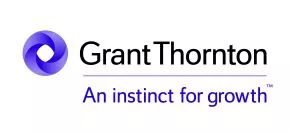Canada is considered one of the best places in the world to do business, partly due to our low corporate tax rate and favourable policies on repatriating foreign income earned in active businesses outside of Canada. These factors, in combination with our close proximity to the United States (and, now, our low Canadian dollar), has many US companies looking north—for growth opportunities in general and, in some cases, specifically to relocate their head office to take advantage of a tax inversion.
In a nutshell, a tax inversion occurs when a US company merges with a similarly-sized foreign company and then locates the new parent company in the same foreign jurisdiction as its merger partner (or, sometimes, a third country). The tax goal is to ensure the new parent is located in a jurisdiction with a lower tax rate.
With Canada's corporate tax rate sitting between 25 and 31 percent (depending on the applicable provincial rate), and the US corporate tax rate rising as high as 42 percent when state taxes are factored in, it's understandable why big American companies like Burger King are deciding to cross the border.
When Burger King decided to merge with Tim Hortons in 2014, it created a Canadian-based parent company called Restaurant Brands International Inc. While both entities professed that non-tax reasons where behind the resulting Canadian parent entity, the end result of what we understand is a complex transaction would be to allow for US tax minimization and the ability to repatriate foreign earning back to Canada on a tax-free basis. As a result, we expect to see a reduction in Restaurant Brands International Inc.'s global effective tax rate over the next few years.
These types of business transactions are complex—and come with their fair share of risks. But many large US corporations believe that they're worth it. In addition to reducing their effective tax rates—and realizing higher returns to investors and other stakeholders as a result—newly-inverted companies have the added benefit of being able to take advantage of existing US tax rules that permit them to deduct interest on properly-structured related-party debt payments made to foreign affiliates.
Understandably, many in the US aren't keen on tax inversions—and the US Treasury introduced rules in 2015 that seek to take away the tax benefits to invert.
While this seems to have a temporary negative impact on the share prices of recent inversions, the price drops don't seem to last long—in the case of the Burger King deal, share prices were up six percent a year after the deal took place—and US corporations don't seem deterred. With that in mind, if your private company is open to merging with or being acquired by a US corporation, the potential for a tax inversion may be an added incentive.
The content of this article is intended to provide a general guide to the subject matter. Specialist advice should be sought about your specific circumstances.


